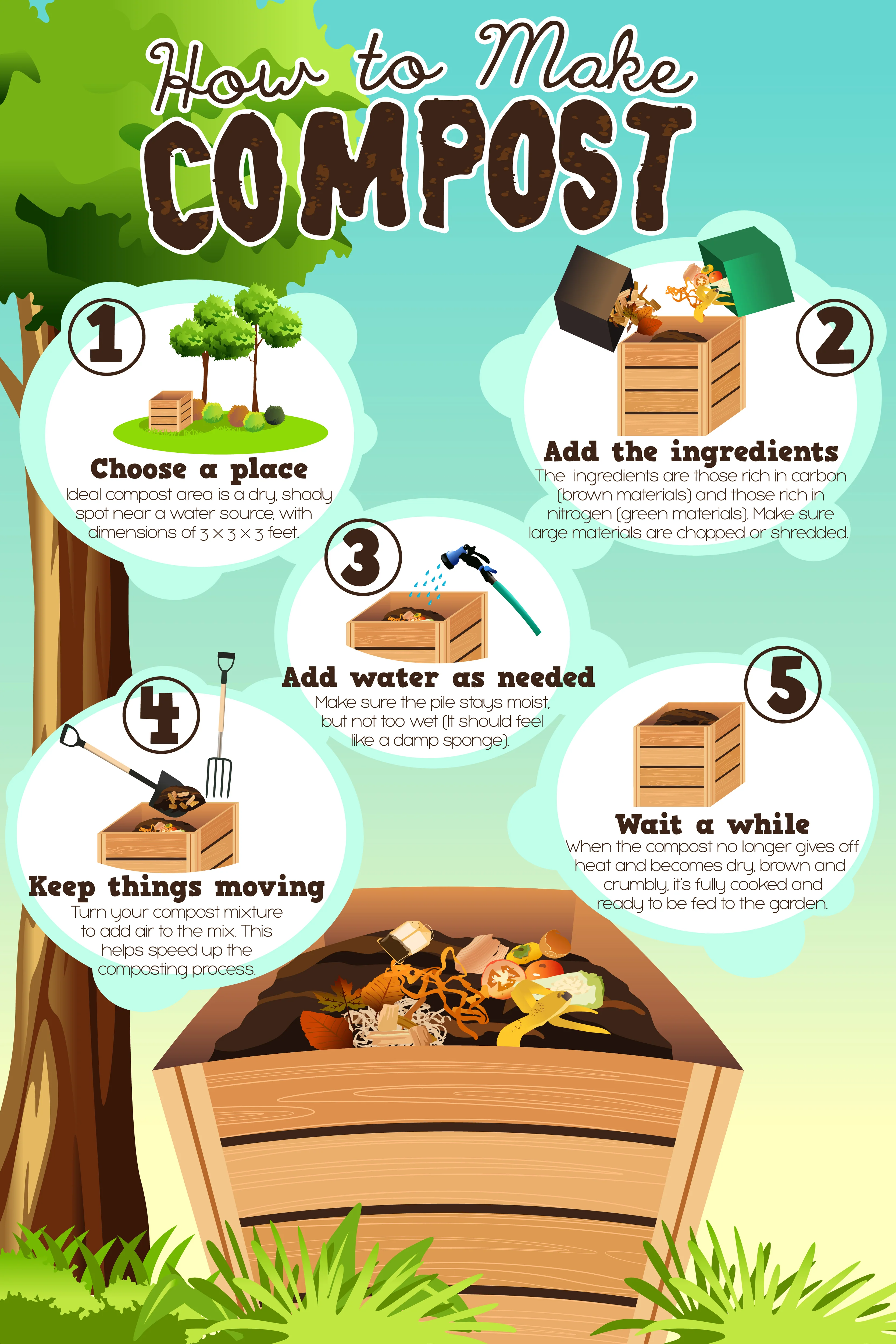Backyard Composting Tips For Creating Your Own Compost Pile

Composting is an excellent way to reduce waste and enrich your soil. By breaking down food scraps and yard waste, you can create a nutrient-rich soil amendment that will nourish your plants and help them thrive. However, composting can be a little intimidating if you're new to the practice.
In this post, we'll cover the basics of composting and provide some helpful tips and tricks for getting the most out of your compost pile.
How to Compost
Before we dive into the nitty-gritty of composting, let's go over the basic steps. These three essential rules will give you a quick and dirty rundown of the composting process:
- Start with a bin or pile. You can use a store-bought container or simply designate an area of your yard for the pile. Make sure the pile is at least three feet by three feet to allow for proper air circulation.
- Add brown and green materials. Brown materials include things like leaves, twigs, and newspaper. Green materials include fruit and vegetable scraps, coffee grounds, and grass clippings. Aim for a 3:1 ratio of brown to green.
- Turn the pile regularly. Every few weeks, use a pitchfork to stir the compost pile. This will help to ensure that air is flowing through the pile and that the materials are breaking down evenly.
That's it! With these three rules in mind, you'll be on your way to a successful and thriving compost pile.
Tips & Tricks
Now that you have the basics down, let's take a look at some tips and tricks to take your composting to the next level:
- Chop up your scraps. The smaller your scraps, the faster they'll break down. If you're putting larger food waste into your compost pile, chop it up into smaller pieces to speed up the process.
- Add worms. Worms are a composting powerhouse. They'll quickly break down your food scraps into nutrient-rich soil amendment. You can buy worms online, or hopefully, they'll find their way to your pile on their own.
- Water your pile. Your compost pile needs to stay moist to break down properly. If you're not getting enough rainfall, be sure to water your pile regularly.
- Avoid dairy and meat. While most food scraps are fair game, try to avoid adding dairy and meat products to your compost pile. These materials can attract unwanted pests and create odors.
- Use finished compost for gardening. Once your compost pile has broken down, you'll be left with a nutrient-rich soil amendment. Use this to enrich your soil and help your plants thrive.
- Be patient. Composting takes time. Depending on the size of your pile and the materials you're using, you may need to wait a few months or even a year for your compost to be ready to use.
- Don't overthink it. At the end of the day, composting is a relatively simple process. Start with the basics and adjust as needed. Don't let the process overwhelm you.
FAQ
Now that we've covered the basics and some helpful tips and tricks, let's take a look at some common questions about composting:
Q: Can I compost pet waste?
A: No, it's best to avoid adding pet waste to your compost pile. It can contain harmful bacteria and parasites that could make you sick.
Q: How often should I turn my compost pile?
A: It's a good idea to turn your compost pile every few weeks. This will help ensure that air is flowing through the pile and that the materials are breaking down evenly.
Q: Why is my compost pile smelly?
A: A smelly compost pile is usually due to too much moisture or too many green materials. Try adding more brown materials or turning your pile more frequently to help control the odor.
And there you have it! With these tips and tricks, you'll be well on your way to a thriving compost pile. Happy composting!


Post a Comment for "Backyard Composting Tips For Creating Your Own Compost Pile"